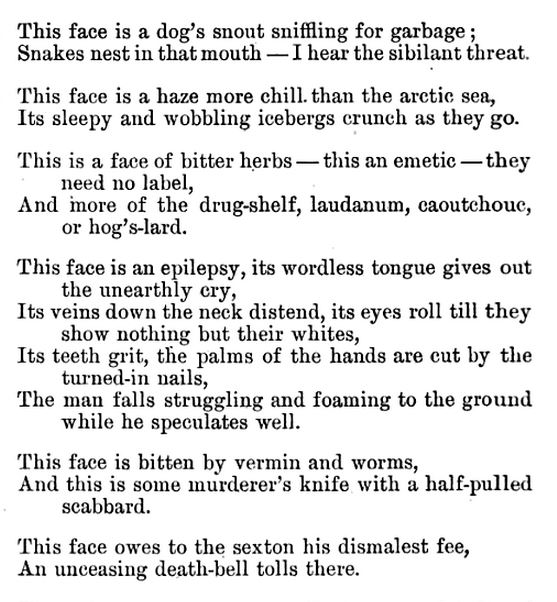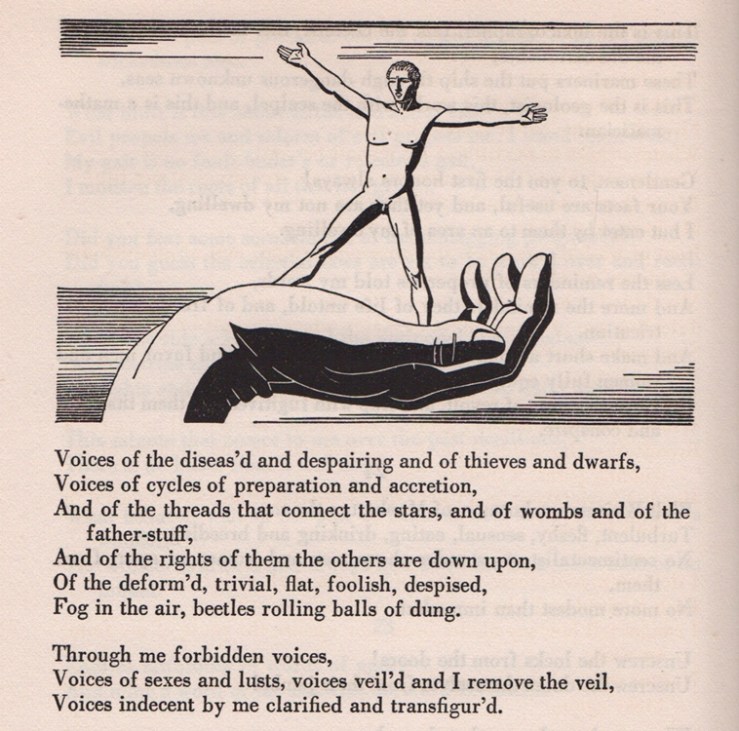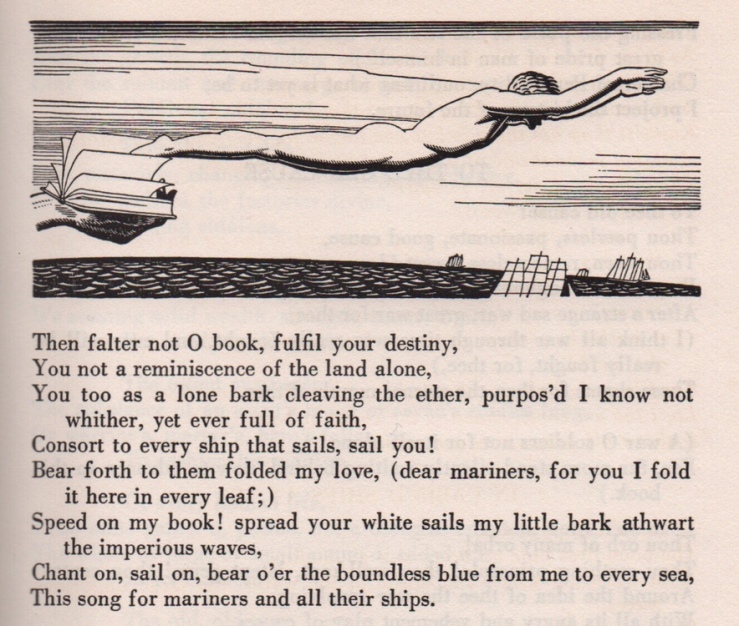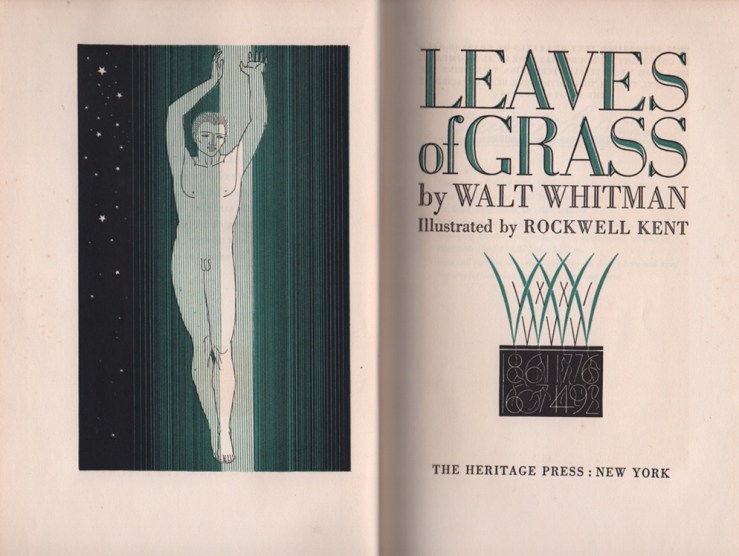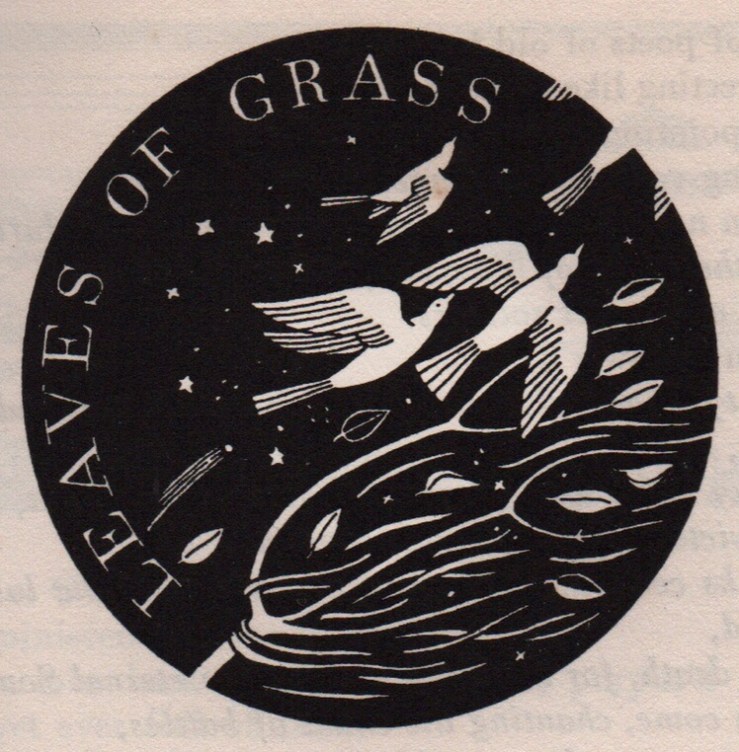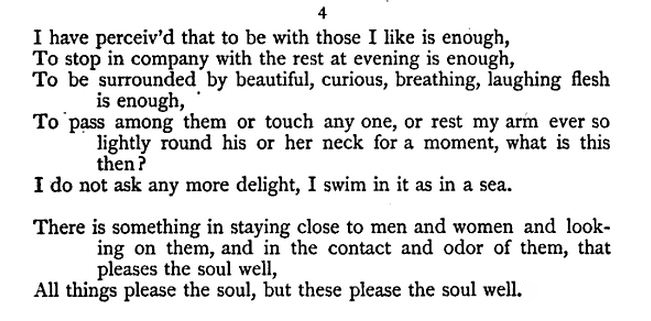“Walt Whitman” by Willa Cather
Speaking of monuments reminds one that there is more talk about a monument to Walt Whitman, “the good, gray poet.” Just why the adjective good is always applied to Whitman it is difficult to discover, probably because people who could not understand him at all took it for granted that he meant well. If ever there was a poet who had no literary ethics at all beyond those of nature, it was he. He was neither good nor bad, any more than are the animals he continually admired and envied. He was a poet without an exclusive sense of the poetic, a man without the finer discriminations, enjoying everything with the unreasoning enthusiasm of a boy. He was the poet of the dung hill as well as of the mountains, which is admirable in theory but excruciating in verse. In the same paragraph he informs you that, “The pure contralto sings in the organ loft,” and that “The malformed limbs are tied to the table, what is removed drop horribly into a pail.” No branch of surgery is poetic, and that hopelessly prosaic word “pail” would kill a whole volume of sonnets. Whitman’s poems are reckless rhapsodies over creation in general, some times sublime, some times ridiculous. He declares that the ocean with its “imperious waves, commanding” is beautiful, and that the fly-specks on the walls are also beautiful. Such catholic taste may go in science, but in poetry their results are sad. The poet’s task is usually to select the poetic. Whitman never bothers to do that, he takes everything in the universe from fly-specks to the fixed stars. His “Leaves of Grass” is a sort of dictionary of the English language, and in it is the name of everything in creation set down with great reverence but without any particular connection.
But however ridiculous Whitman may be there is a primitive elemental force about him. He is so full of hardiness and of the joy of life. He looks at all nature in the delighted, admiring way in which the old Greeks and the primitive poets did. He exults so in the red blood in his body and the strength in his arms. He has such a passion for the warmth and dignity of all that is natural. He has no code but to be natural, a code that this complex world has so long outgrown. He is sensual, not after the manner of Swinbourne and Gautier, who are always seeking for perverted and bizarre effects on the senses, but in the frank fashion of the old barbarians who ate and slept and married and smacked their lips over the mead horn. He is rigidly limited to the physical, things that quicken his pulses, please his eyes or delight his nostrils. There is an element of poetry in all this, but it is by no means the highest. If a joyous elephant should break forth into song, his lay would probably be very much like Whitman’s famous “song of myself.” It would have just about as much delicacy and deftness and discriminations. He says:
“I think I could turn and live with the animals. They are so placid and self-contained, I stand and look at them long and long. They do not sweat and whine about their condition. They do not lie awake in the dark and weep for their sins. They do not make me sick discussing their duty to God. Not one is dissatisfied nor not one is demented with the mania of many things. Not one kneels to another nor to his kind that lived thousands of years ago. Not one is respectable or unhappy, over the whole earth.” And that is not irony on nature, he means just that, life meant no more to him. He accepted the world just as it is and glorified it, the seemly and unseemly, the good and the bad. He had no conception of a difference in people or in things. All men had bodies and were alike to him, one about as good as another. To live was to fulfil all natural laws and impulses. To be comfortable was to be happy. To be happy was the ultimatum. He did not realize the existence of a conscience or a responsibility. He had no more thought of good or evil than the folks in Kipling’s Jungle book.
And yet there is an undeniable charm about this optimistic vagabond who is made so happy by the warm sunshine and the smell of spring fields. A sort of good fellowship and whole-heartedness in every line he wrote. His veneration for things physical and material, for all that is in water or air or land, is so real that as you read him you think for the moment that you would rather like to live so if you could. For the time you half believe that a sound body and a strong arm are the greatest things in the world. Perhaps no book shows so much as “Leaves of Grass” that keen senses do not make a poet. When you read it you realize how spirited a thing poetry really is and how great a part spiritual perceptions play in apparently sensuous verse, if only to select the beautiful from the gross.
Nebraska State Journal, January 19, 1896

